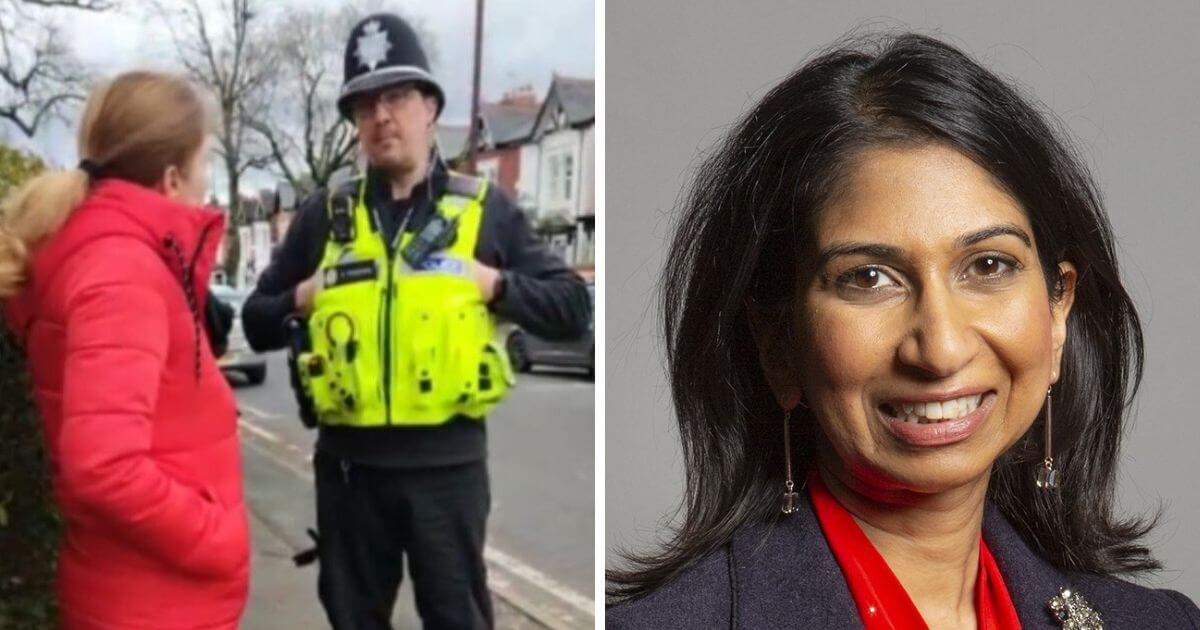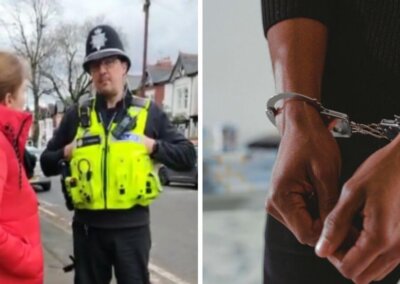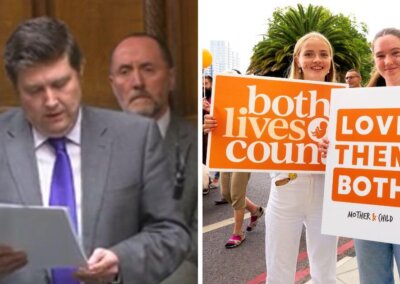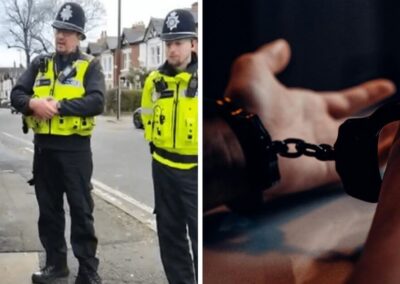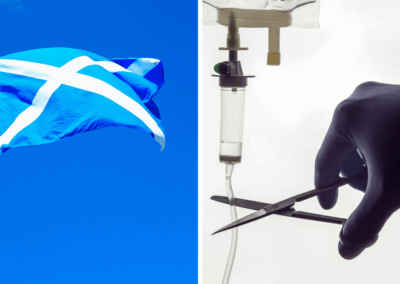The Home Secretary, Suella Braverman, has reminded police in the UK that “silent prayer, within itself, is not unlawful”, raising questions about legislation passed earlier this year that makes “influencing” any person who wants to access abortion services at an abortion facility illegal.
Braverman’s letter, released at the beginning of this month, came just days before the First Minister of Scotland, Humza Yousaf, signalled his continued support for the introduction of censorship zones in Scotland.
“[H]olding lawful opinions”, the letter reminds officers, “even if those opinions may offend others, is not a criminal offence”.
In the letter, the Home Secretary quotes His Majesty’s Chief Inspector approvingly “The police […] aren’t there to champion social change or take sides. This includes a requirement to preserve all rights, including the right to free speech”.
Jeremiah Igunnubole, Legal Counsel for ADF UK, the legal organisation representing Isabel Vaughan-Spruce and Adam Smith-Connor, who have both been charged for silently praying within a buffer zone, said “The government’s focus on restoring common sense to British policing is welcome and long overdue. Too often, of late, arrests have been justified by reference to subjective notions of offence rather than an objective application of the law. Politicised policing seriously threatens democracy, which relies on the right to freedom of speech and free and frank exchange of viewpoints to be effectively realised”.
Fined for “praying for his deceased son”
The Home Secretary’s reminder to the police comes in the wake of legislation, passed in March of this year, which makes it a criminal offence to “influence” any person seeking to access abortion services within 150m of an abortion clinic. MPs failed to pass an amendment to this legislation that would have explicitly protected from prosecution those engaged in praying within their own mind and those offering help and information about abortion.
Apart from the passing of this national legislation, which has yet to be implemented, there have been a number of instances in which individuals have been charged for silently praying near abortion clinics in the UK under local Public Space Protection Orders (PSPOs).
Isabel Vaughan-Spruce, a charity volunteer, and Fr Sean Gough, a Catholic priest, were both charged for allegedly violating a PSPO and had the charges against them dropped in February.
Ms Vaughan-Spruce was arrested again in March of this year for the same alleged violation of a PSPO. She is currently on bail awaiting a decision on her charge.
Adam Smith-Connor, a 49-year-old physiotherapist and army veteran, was also charged by The Bournemouth, Christchurch and Poole (BCP) Council for silently praying within an abortion facility buffer zone.
In December 2022, Mr Smith-Connor was fined £100 for silently “praying for his deceased son” outside an abortion clinic in Bournemouth that is covered by a PSPO. The PSPO prohibits prayer, offers of help, counselling, and other activities that could constitute protest. Mr Smith-Connor had been praying for his son that he lost through an abortion that he had paid for. He awaits trial in November.
Right To Life UK spokesperson, Catherine Robinson, said “The Home Secretary’s comments are very welcome to those pro-lifers who want to offer support and prayers outside of abortion clinics in the UK, and also to those who support freedom of thought and speech more generally. The criminalisation of thought, which is exactly what the criminalisation of silent prayer is, is deeply sinister, and it is encouraging that the Home Secretary seems to recognise this. It remains to be seen, given her comments, how the new ‘buffer zone’ law will be enforced”.


